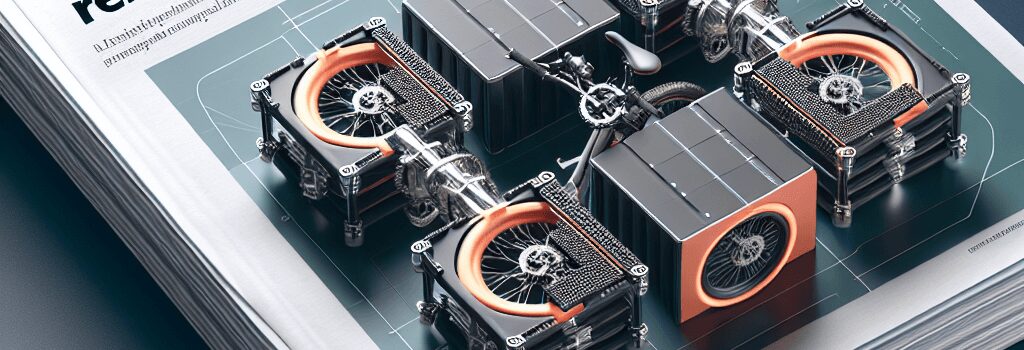Gouach’s Modular Cells Redefine E-Bike Power

Harvest, Pack, Ride: A New Approach to E-Bike Batteries
Most e-bike packs are welded assemblies of 18650 lithium-ion cells wired in series and parallel, sealed inside hard plastic or metal shells. When a few cells fail—often just two or three in a 40-cell pack—the entire battery is considered “dead.” Repair requires spot welding, BMS re-engineering, and precise thermal management: skills and tools few riders possess. Gouach, a three-person French startup, flips this model on its head with its Infinite Battery, a fireproof, IP67-rated casing that lets users insert and pluck individual 18650 cells using only a screwdriver.
Modular Design and Technical Deep Dive
Custom PCB Contacts and Thermal Monitoring
Gouach spent four years refining a no-weld interconnect system. Standard spring contacts proved too loose under vibration (IEC 60068 test conditions), so the team developed custom FR4-based PCBs with etched copper traces and flexible contact fingers. Each cell slot features an independent temperature sensor—an NTC thermistor—providing per-cell thermal data via the integrated BMS.
Battery Management System and Safety Features
- Cell balancing: passive balancing at up to 200 mA per cell to prevent overcharge drift
- Overcharge/overdischarge protection: voltage monitoring at 0.01 V resolution
- Short-circuit and overcurrent cutoff: 60 A peak handling with electronic fuse thresholds
- Bluetooth 5.0 LE link with AES-128 encryption for real-time diagnostics in Gouach’s mobile app
Compatibility and Integration Challenges
The Infinite Battery ships in 36 V (10s4p) and 48 V (13s4p) configurations, supporting pack capacities from 360 Wh to 624 Wh. Gouach claims compatibility with over 90% of existing e-bike frames; some models accept a direct swap into the downtube, while others use rack or bottle-cage mounts with custom brackets.
Overcoming Bosch Encryption
“Bosch uses encrypted CAN protocols between motor and battery,” says CEO Alexandre Vallette. “After a serious reverse-engineering effort, we implemented a secure authentication handshake in our firmware to emulate a Bosch battery signature.”
Manufacturing, Certification, and Market Rollout
Since raising €200 K on Indiegogo and €3.5 M in VC funding, Gouach has established a small-volume assembly line in Lyon. In June 2025 they secured UL 2271, CE, and FCC certifications. To sidestep U.S. import tariffs, final assembly of electronics is now handled stateside. EU backers receive kits this month; a U.S. online store opens in Q3, with global distribution to follow.
Expert Perspectives and Industry Context
- Dr. Marie Dubois, battery researcher at CEA Grenoble: “Modular packs reduce material waste and enable second-life cell reuse from EV battery recycling streams.”
- Lucas Hernandez, co-founder of Velotech Repairs: “Repairable e-bike batteries will finally give small shops a viable service offering, driving down whole-pack replacement costs.”
Future Outlook: Towards a Repairable, Circular E-Bike Ecosystem
Gouach’s approach dovetails with global Right to Repair and circular economy initiatives. By treating batteries as assemblages rather than sealed consumables, Infinite Battery paves the way for:
- On-street cell swap stations, similar to fuel pump networks.
- Second-life modules sourced from decommissioned EV packs.
- Open-source BMS development for community-driven feature improvements.
As e-bike adoption accelerates—projected at 130 million units by 2030—solutions like Gouach’s could become critical for sustainability, affordability, and safety in micro-mobility.